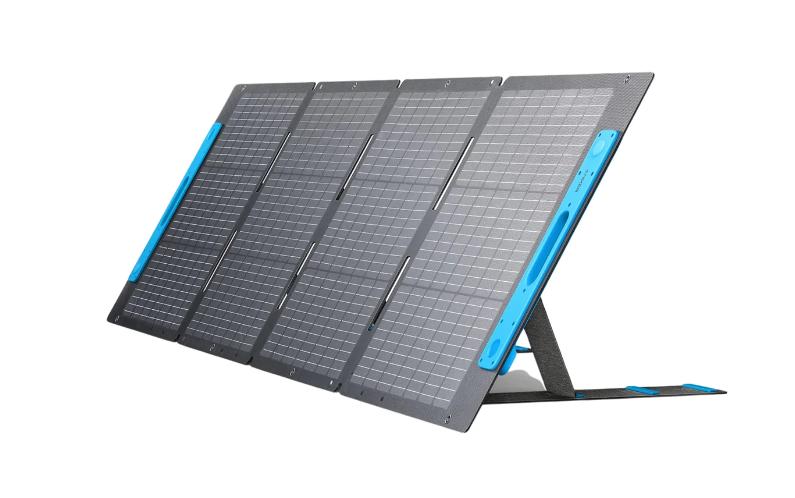You may have heard news reports about solar panel fires, but could you be at risk of a similar incident occurring in your own home? Solar energy is becoming increasingly popular as an alternative to traditional power sources due to its green benefits, but with any system comes potential risks. In this blog post, we will explore the possible causes behind solar panel fires and provide tips for how to prevent your system from a dangerous blaze. Read on to learn more about the frequency of solar panel fires and what precautions you need to take to prevent them!

Is There a Fire Risk for Solar Panels?
While it is true that all electrical devices come with some level of risk, solar panels are generally considered to be safe and reliable sources of renewable energy. In fact, various studies and tests have shown that the likelihood of a solar panel causing a fire is extremely low. Additionally, solar panels are often equipped with built-in safety mechanisms, such as automatic shut-off functions, that help to prevent any potential fire hazards. However, it is essential to understand the potential causes of solar panel fires and how to prevent them effectively.
What Can Cause Solar Panel Fires?
Solar panel fires can be caused by various factors, although they are relatively rare compared to other types of fires. Here are some potential causes of solar panel fires:
- Electrical malfunctions: Faulty wiring, damaged connectors, or poor installation can lead to electrical arcing or short circuits, which may result in a fire.
- Manufacturing defects: Defective components or poor-quality materials used in the manufacturing process can increase the risk of fires.
- Overheating: If solar panels are exposed to excessive heat due to poor ventilation or high ambient temperatures, they can overheat and potentially ignite surrounding materials.
- External factors: External events such as lightning strikes or power surges can cause electrical faults and subsequently lead to fires in solar panels.
- Flammable material proximity: If flammable materials, such as dry leaves, debris, or nearby buildings, come into contact with the solar panels or accumulate underneath them, there is an increased risk of fires.
- Installation errors: Incorrect installation, such as improper grounding or insufficient clearance between panels and the roof, can create conditions that increase the likelihood of fires.
- Extreme weather events: Severe weather conditions like hailstorms or strong winds can cause physical damage to solar panels, potentially leading to electrical faults and fires.
 How to Prevent Solar Panel Fires?
How to Prevent Solar Panel Fires?
Preventing solar panel fires involves following proper installation practices, conducting regular maintenance, and implementing safety measures. Here are some guidelines to help prevent solar panel fires:
Professional Installation
When hiring solar panel installers, look for certifications such as NABCEP (North American Board of Certified Energy Practitioners) or other recognized credentials. Experienced installers are knowledgeable about best practices, local regulations, and safety requirements. They can ensure that the panels are mounted securely, the wiring is properly installed, and all connections are correctly made, reducing the risk of electrical faults and fire hazards.
Quality Equipment
Choose solar panels and components from reputable manufacturers who have a track record of producing reliable and safe products. Some options worth considering are the Anker, BLUETTI, and Jackery. Their high-quality solar panels undergo rigorous testing to minimize the likelihood of manufacturing defects that could lead to fires. What's more, such solar panels have been specifically designed to withstand various environmental challenges, including scratches and adverse weather conditions.
 Regular Inspections
Regular Inspections
Schedule periodic inspections by qualified professionals who specialize in solar panel systems. These inspections should include a thorough examination of the panels, wiring, connectors, and other components. Inspectors can identify signs of wear, corrosion, or damage that may pose fire hazards. They can also check for proper electrical performance and ensure that the system is operating within safe parameters.
Monitor Weather Conditions
Keep a close eye on weather forecasts and be prepared for severe weather events. If storms or high winds are expected, take precautionary measures to secure the panels, such as reinforced mounts or additional fasteners. Consider installing hail guards or protective coverings to minimize physical damage during hailstorms. After severe weather, visually inspect the panels for any visible damage and consult professionals if necessary.
Maintenance and Cleaning
Regularly clean the solar panels to maintain their efficiency and reduce the risk of overheating. Follow the manufacturer's guidelines for cleaning, as different panel types may have specific requirements. Use appropriate cleaning tools and techniques to avoid scratching or damaging the panels. Remove any debris, leaves, or vegetation that may accumulate around or under the panels, as these can be potential fire hazards.
How Do Solar Panels Affect Firefighters When There Is a Solar Panel Fire?
Solar panel fires present unique challenges for firefighters due to the nature of the technology and the associated electrical hazards. When responding to a solar panel fire, firefighters need to take specific precautions:
- Electrical safety: Solar panels continue to generate electricity even when damaged or in a fire. Firefighters must treat any solar panel as potentially energized and follow established electrical safety procedures to prevent electrical shock or injury.
- Access and ventilation: Solar panels can impede access to the roof or other areas during firefighting operations. Firefighters may need to create ventilation openings or remove panels to gain better access to extinguish the fire effectively.
Conclusion
While solar panels offer numerous benefits as a renewable energy source, it is crucial to be aware of the potential fire risks they can pose. By understanding the causes of solar panel fires and implementing preventive measures, such as regular maintenance, quality installation, and appropriate fire safety measures, the risk of fires can be minimized.
[ddshopfaq-59343]












